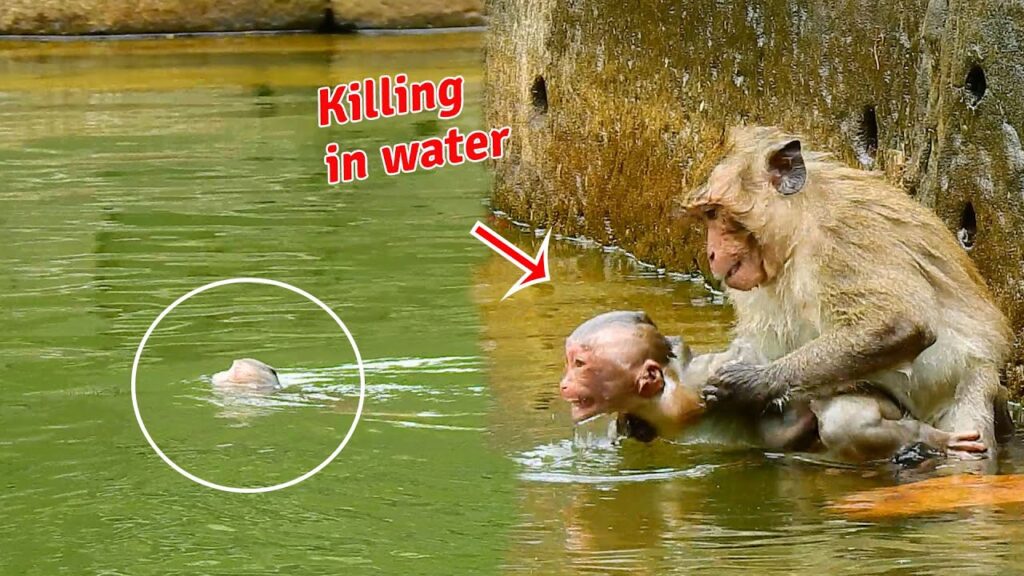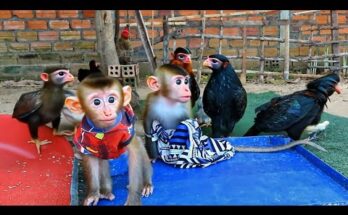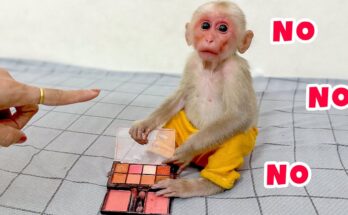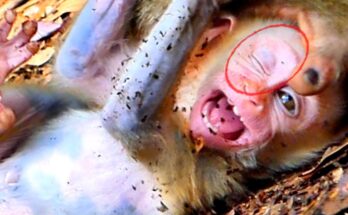
Within seconds, the baby is shoved into the water. What follows is deeply disturbing and heartbreaking. The orphan baby monkey struggles to stay afloat. Its tiny limbs flail as it attempts to reach the edge. But instead of helping, the older monkey seems to block its path. The other monkeys nearby don’t intervene—either out of fear, confusion, or indifference.
Despite its desperate efforts, the baby monkey’s energy quickly fades. Within moments, the struggle stops. The pool, once calm, becomes still again—but now heavy with the weight of tragedy.
Viewers watching the video are left shocked and emotional. The cruelty of nature, especially in social primate groups, can sometimes mirror the darker sides of humanity. In some species, dominance, rejection, or territorial behavior can result in brutal outcomes, especially for weak or orphaned young. What we witnessed here may not have been intentional “killing” in the human sense—but it was a fatal moment fueled by aggression, dominance, and lack of protection.
This heartbreaking scene has triggered a wave of reactions online. Many people express anger toward the aggressive monkey, but others remind us that these animals act on instinct, not morality. Unlike humans, monkeys do not always comprehend consequences the same way. Still, that does not make the scene any easier to watch.
Experts in primate behavior suggest that orphaned baby monkeys are often at higher risk for neglect or aggression, especially if they lack social allies within the troop. In the wild or even in semi-managed environments, hierarchy plays a huge role. Without a mother or older sibling to protect it, a baby monkey can become a target.
What this incident teaches us is the critical importance of care, supervision, and support for orphaned animals in sanctuary environments. While we cannot always prevent natural behaviors, more structured protection can save lives.
As the video concludes, a somber message appears on the screen: “This is not just a video—it’s a reminder. Every orphaned animal deserves a second chance, and every life is precious.”


